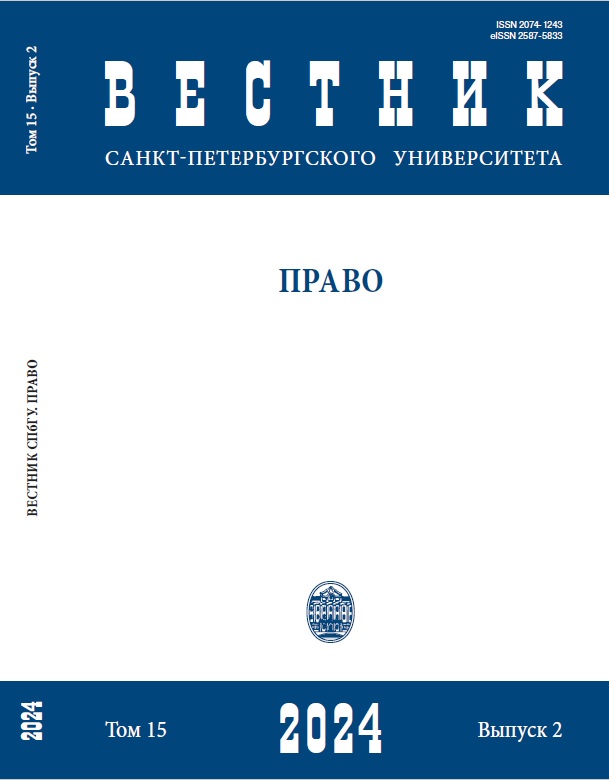New digital and other innovative tools for environmental protection, nature management and environmental safety for the purposes of antimonopoly and financial regulation
DOI:
https://doi.org/10.21638/spbu14.2024.215Abstract
The article is devoted to the development of digitalization of the life of modern society, the
problems that this phenomenon creates for modern societies and legal orders, as well as ways to solve them. The authors outline that the level of dynamics of innovative development has led to the introduction of digital technologies in almost all areas of both production and many aspects of a person’s private life, the legal regulation of which is not isolated. The authors analyze in detail the initiatives and solutions being implemented in the world, paying special attention at the intersection of the development of information technology and ensuring environmental safety. In particular, the authors note that the advancement of information technology has led to greater transparency of information in commodity
markets and suggest using this transparency to ensure greater protection of the population
and states from environmental offenses and information abuse by businesses affecting the
production of environmentally friendly goods, as well as the development environmentally
friendly industries. The sustainable development of any country in modern conditions is
seen by the authors of this research in finding a balance between establishing conditions for free technological advancement and minimizing the negative effect of such advancement by stimulating the honesty and openness of companies, rather than classical prohibitions and restrictions, which is possible with the use of modern information technologies.
Keywords:
environmental safety, environmental protection, environmental governance, social governance, sustainable development, digitalization, public procurement, greenwashing, unfair competition
Downloads
References
Downloads
Published
How to Cite
Issue
Section
License
Articles of "Vestnik of Saint Petersburg University. Law" are open access distributed under the terms of the License Agreement with Saint Petersburg State University, which permits to the authors unrestricted distribution and self-archiving free of charge.






